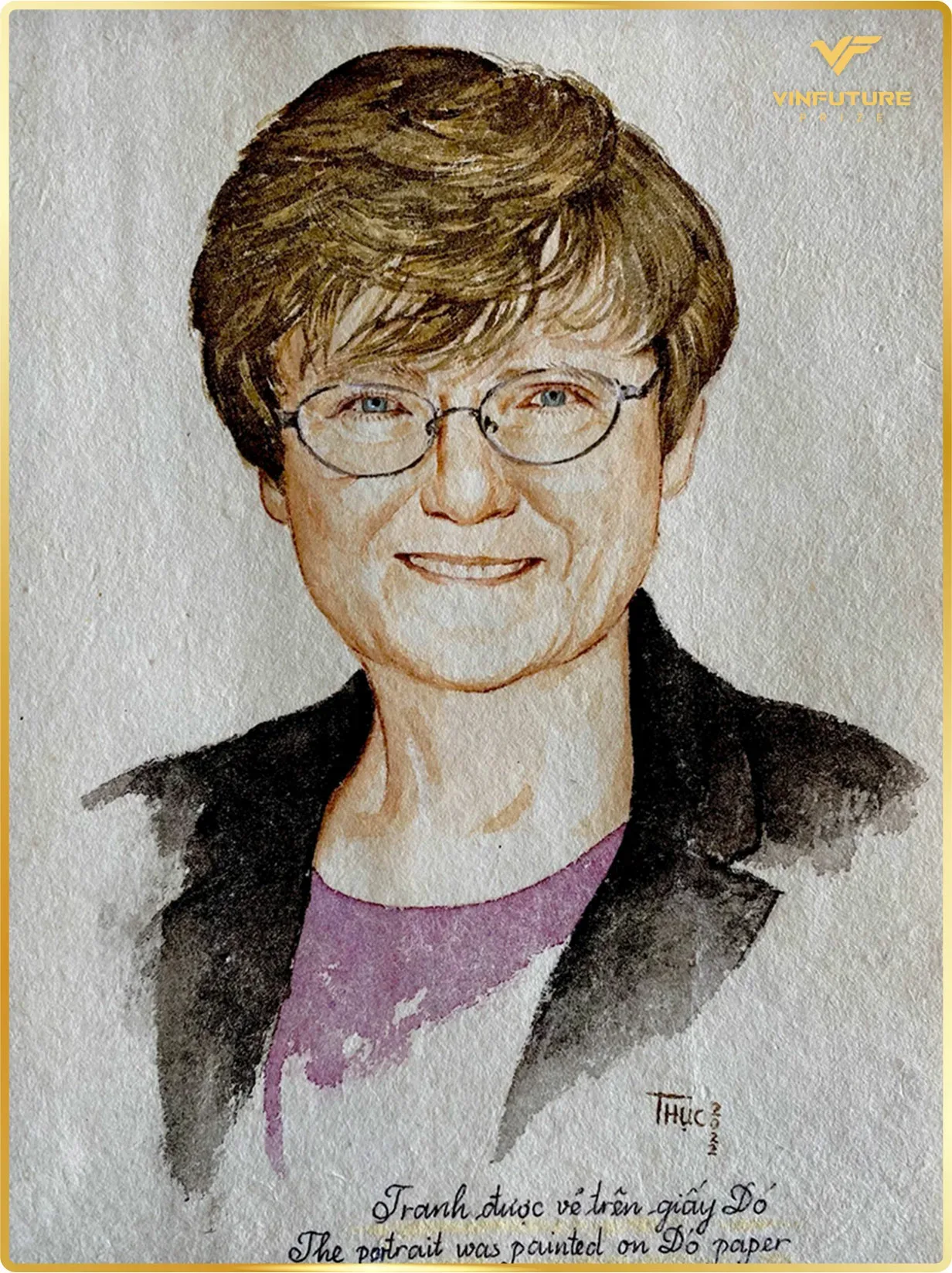BIOGRAPHY
Affiliation at the time of the award: BioNTech SE, Germany; University of Pennsylvania School of Medicine, USA; University of Szeged, Hungary
Katalin Karikó was born in 1955 into the family of a butcher in Kisújszállás, a town some 150 kilometers east from Budapest. Karikó went to the local public schools and has praised her teachers both in the elementary and high school, Móricz Zsigmond Gimnázium. They instilled into her the love of mathematics and sciences. Upon graduation from high school, she enrolled at the University of Szeged. She majored in biochemistry and completed her equivalent of a Master’s degree in 1978.
She started to work in Szeged at the Biological Research Center (BRC) of the Hungarian Academy of Sciences whose scholarship allowed her to embark on her doctoral studies. Jenő Tomasz was her PhD advisor, a caring organic chemist of broad vision who’s impact further strengthened Karikó’s dedication to biochemistry. She has remembered the sizzling scientific atmosphere at the laboratory. She received her PhD in 1982 from University of Szeged.
Karikó started to work in Philadelphia, at the University of Pennsylvania (UPenn) in 1989, focusing her research on therapeutic application of in vitro transcribed mRNA. In 1997, she had a chance meeting with a recently appointed professor, Drew Weissman of the UPenn Perelman School of Medicine. The encounter injected new hopes for Karikó to continue her efforts. Weismann was an MD/PhD immunologist with his degrees from Brandeis University. He did postdoctoral work with Anthony Fauci, the Director of the National Institute of Allergy and Infectious Diseases of NIH. Anthony Fauci is currently (2021) the Chief Medical Advisor to President Joe Biden. At UPenn, Weissman had ambitious plans for finding vaccine for treating AIDS patients. When Karikó told Weissman about her work of generating mRNA, he recognized their unique potentials. Hence, a most fruitful interaction developed between them.
SUMMARY OF WINNING ENTRY | MRNA-BASED VACCINE
Drs. Katalin Karikó and Drew Weissman developed the nucleoside-modified mRNA technology and other mRNA vaccine-related improvements that both Pfizer-BioNTech and Moderna have used in the development of their vaccines.
Much of the early research effort also induces a general inflammatory response because the body’s innate immune system recognizes the sudden presence of foreign RNA and reacts as if it were an attack of the real virus. Drs. Karikó, Weissman and their colleagues ensure that the RNA gets into the cell and gives instructions in the right direction to make RNA therapeutically viable without causing cytokine induction, toxicity or off-target effects.
MEANINGFUL CHANGES
The modification applied to the mRNA by Drs. Karikó & Weissman significantly stabilized the molecule, reduced its own immunogenicity to host cells, and provided a huge immunomodulatory potential that makes vaccine mRNA become possible and reliable applications of mRNA as a drug for major human diseases.
The idea of an mRNA vaccine has been used to generate immune response against share tumor antigens or neoepitopes of mutated proteins present in the tumor cells.
In addition to vaccines against influenza, HIV-1, rabies and Zika virus, in the future, mRNA technology will be able to be applied in the treatment of diseases such as cancer, liver and heart diseases..








